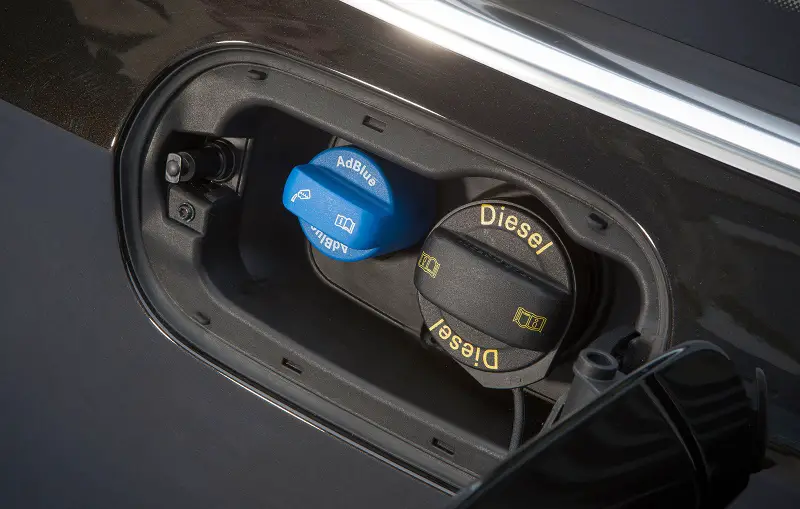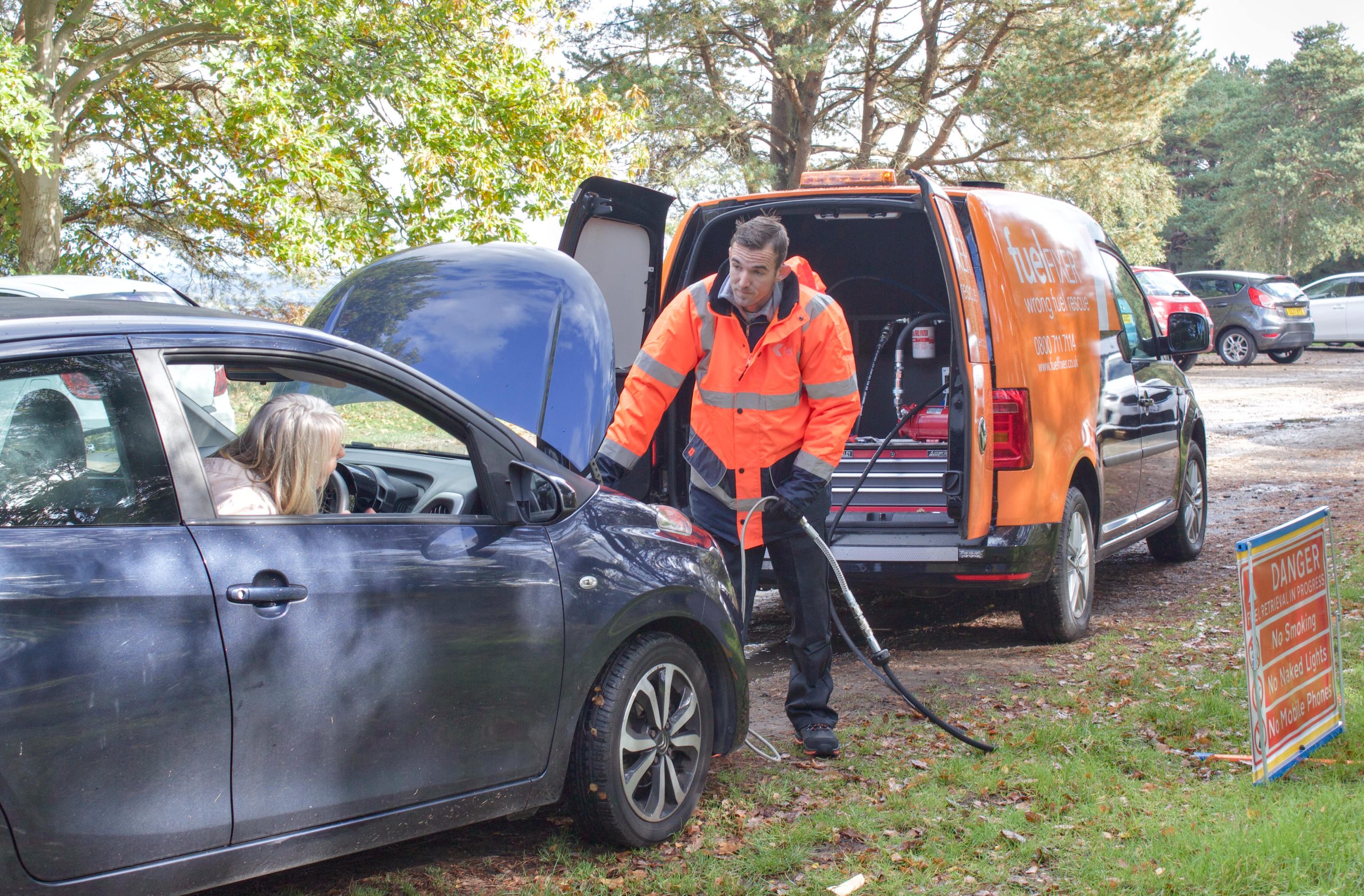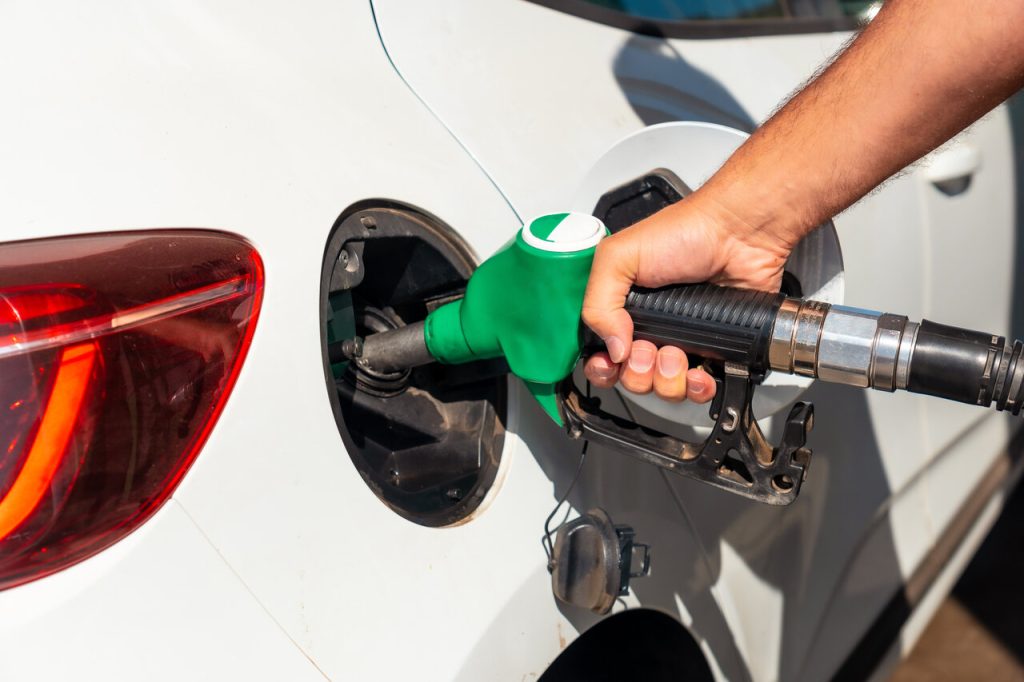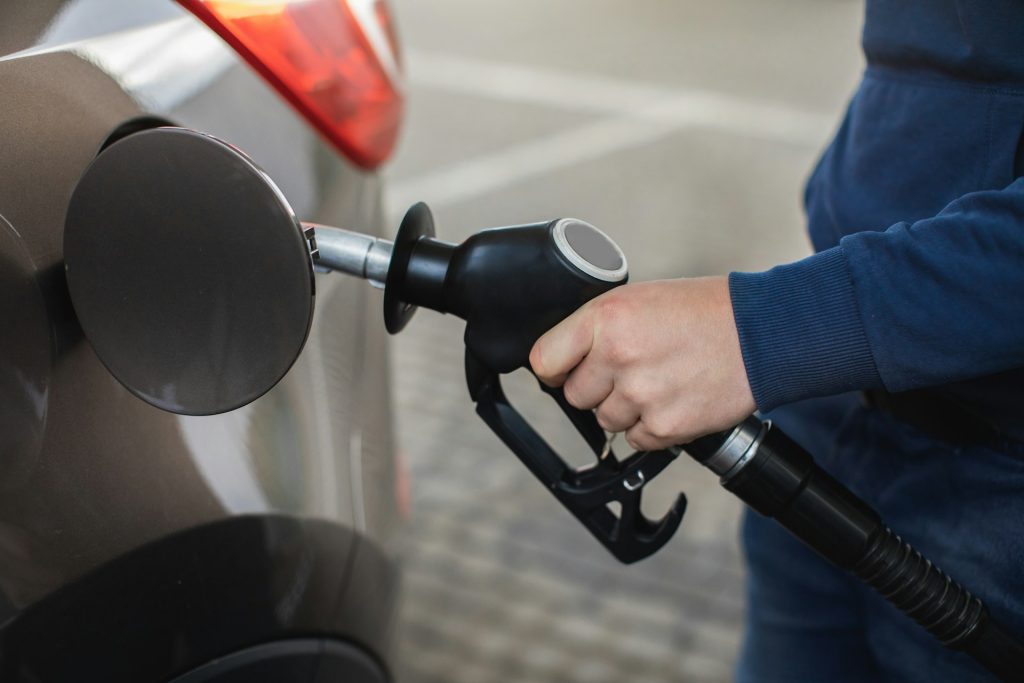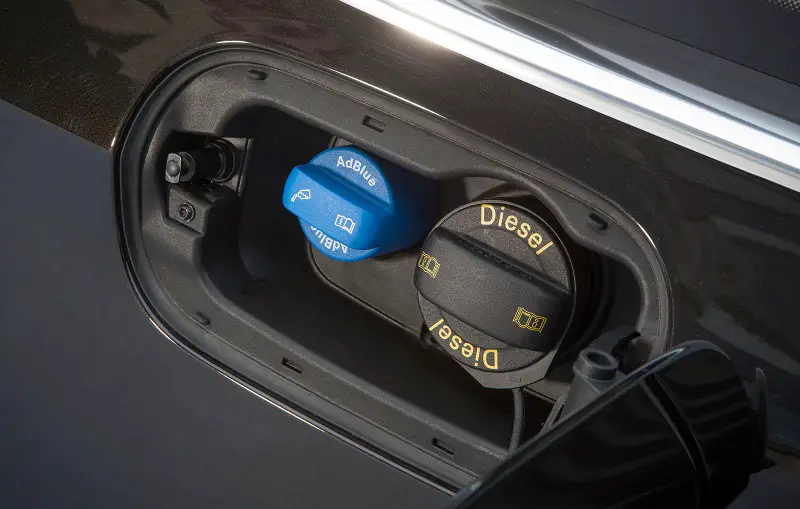AdBlue is NOT a fuel additive and should never be mixed into your fuel tank – petrol or diesel. It needs to go into its own separate filler (usually with a blue filler cap). If you’ve mistakenly put AdBlue into the fuel tank it’s important to get it removed it quickly, or engine serious damage can occur. It’s not an easy DIY job, but our mobile units can get to you quickly and fix the problem.
What does AdBlue do to my engine?
AdBlue is a liquid that helps to remove nitrous oxide – a poisonous gas – from your car’s exhaust. It is used to clean exhaust fumes – it is definitely not a fuel additive. It mostly consists of ionised water and also contains urea, which is corrosive to fuel system pipes and seals. Furthermore it is prone to crystallisation, clogging injectors and fuel filters – like the picture below. It will do expensive damage if not removed. But provided you act quickly, it will be fine. We fix it on the spot so you can drive on without concern.
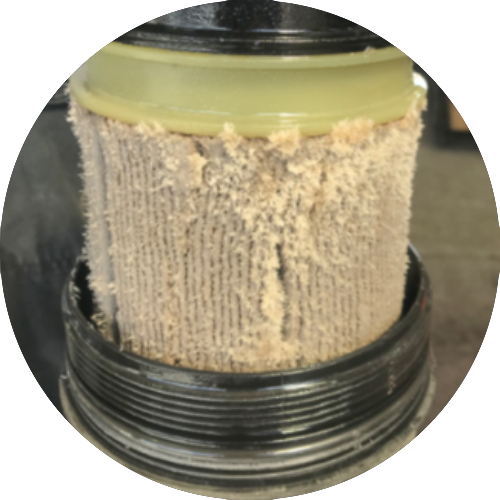
We bring specialist equipment to empty your fuel tank, including the AdBlue which has gone in there by mistake. This includes flushing your fuel lines, filters, pumps and engine. The procedure to drain your fuel, then re-set and re-start your car takes about 30 minutes.
We’ll give you fresh fuel so you can drive on. Once done, your car will be just fine. Our mobile mechanic will be with you soon after you call.
Put AdBlue in the fuel tank and driven it?
Your car might go a short distance, depending on how much AdBlue has been put in. But as the contaminated fuel goes through the system it will do damage. It needs to be fully removed. There’s really no safe amount of AdAblue in petrol or diesel. If you’re not sure, call our hotline for sensible advice.
Why choose Fuel Fixer?
Several companies now offer fuel draining services, including reputable businesses such as the AA and Fuel Doctor. Unfortunately there are also less trustworthy companies without the equipment and training for a proper job. We have over 15 years experience and lead the field in service and technical expertise.
In the unlikely event you experience a problem afer we finish, you’ll have our hotline number for further advice and help.
Once our mechanic finishes the draining he’ll do a re-set and re-start procedure – after putting in some of the right fuel. Then you can get back to your journey.
He may also advise using a special additive when you next refuel to give extra engine protection. If so, he’ll explain and show you how to use it.
Want to know more?
See answers to common questions about misfueling and fuel contamination here
Many people ask: “Have I damaged my engine?”, “What exactly does petrol do to a diesel engine?”, or “Will this affect my warranty?”
See the answers below, or call us on 01 506 0386
Petrol in a Diesel engine:
Petrol and diesel engines are very different. Petrol needs a spark to ignite, but diesel combusts slowly under the pressure created inside the engine.
Diesel is thicker than petrol, and more oily – diesel engines rely on this oiliness for lubrication. Petrol washes that oil away, leaving the internal components open to rapid wear.

